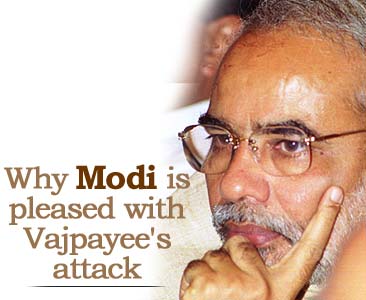BJP suspects 'GOI elements' role in leak of Special Investigation Team report on Gujarat riots

New Delhi, Feb 4 : Suspecting the hands of 'elements of Government of India' behind the leakage of the portions of the Special Investigation Team report on the Gujarat riots filed before the Supreme Court, the BJP stressed the need for a probe into the leakage of the confidential information to the select media.
| |
Reacting to the portions of the SIT reports submitted to the Supreme Court on the 2002 Gujarat riots finding their way to the media, BJP spokesman Ravishankar Prasad told reporters that the apex court had directed the SIT to submit the report in a 'sealed cover' and the BJP has not even have slight doubts about the impeccable integrity of the Court in maintaining the secrecy that was expected of it.
He said a similar report was filed before the SC giving out the details of 24 holders of secret bank account holders outside of India and till today not a single name had come out. It goes to the credit of the SC for maintaining the secrecy that was expected of it.
However, the elements in the GOI which was confronted with problems from all sides to divert the attention of the people from these issues had 'engineered' the leakage to the select media after the SIT submitted its report to the Court in a sealed cover, he said. He, however, would not go into the 'contents of the leaked information' because they were before the SC for consideration and it had not formed its views.
He said riots were unfortunate and condemnable wherever they happened but it went to the credit of Gujarat that it had highest record in awarding punishment for the crime where over 700 people were convicted for the offences including 70 who were awarded with Rigorous Imprisonment ranging from 10 to 20 years.
Of all the parties, the Congress can not raise questions on Gujarat riots after its own tainted record in 1984 riots against Sikh community in Delhi and other parts of the country. The party spared no effort to save the likes of its leaders like Sajjan Kumar, Jagdish Tytler and its President Rajiv Gandhi went to the extent of justifying the riots when he remarked 'the earth is bound to shake when a big tree falls', Mr Prasad said.
As far as Gujarat after the riots were concerned both Hindu and Muslim communities were living harmoniously with amity and good will. Even the leaked records said that there was no evidence of interference by Mr Modi or others but he would not comment upon it as he was not privy to the report except the leaks and the Court has not even considered it.



